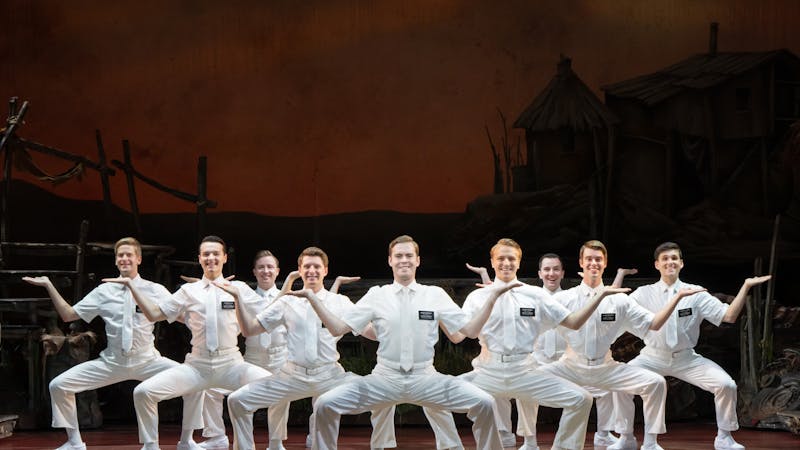A history of caffeine consumption at Rice
People drink it sociably in public and private places alike, consuming it in its rawest, most bitter forms, or mixing it with other flavors so that the sweetness will make the drink more bearable. Not many people are aware of just how physically and psychologically dependent they are on it, and most are willing to spend a ridiculous amount of money for one small serving of temporary fulfillment. For better or worse, you can buy this addicting liquid almost anywhere; Rice has three places that sell it, all within minutes of each other.
We're talking about coffee, not alcohol, although it's no coincidence that the above description works equally well for both beverages. Both coffee and alcohol have been consumed socially since the beginning of recorded society, but, especially on Rice's campus, coffee has not always been consumed in the same way throughout the ages.
According to the 2008 edition of the Rice Historical Society's newsletter, The Autry House opened in 1921 and served as one of the earliest social hubs for Rice students, selling coffee in its Canteen for nearly 40 years until the opening of the RMC. Coffee's less caffeinated counterpart, tea, was also a significant part of Rice's student culture at the time. Silver Tea Gatherings, which were afternoon teas held for the purpose of fundraising, were hosted at the Autry House during this time.
Subsequently, one of Rice's earliest student coffee shops, Breadsticks and Pomegranates, opened in the Hanszen Basement in 1967. Although it was fairly common for students to meet socially over coffee, there wasn't really a "Coffeehouse culture" among students in the 1960s, according to English professor Wesley Morris, who arrived at Rice a year after the coffee shop's opening.
"What's different now is that there's a lot more visible evidence… there are many more varieties of coffee, many more ways to drink coffee than there used to be," Morris said. "Most of the people I knew when I was a student never put sugar in their coffee – coffee was always bitter, very strong and there were only five or six brands."
Breadsticks and Pomegranates eventually closed due to flooding problems and was replaced by the more centrally located Coffeehouse, which officially opened in 1990. According to Coffeehouse General Manager Christine Cooper, Coffeehouse initially offered only three coffee drinks: black coffee, espresso shots and espresso shots with whipped cream – a far cry from the myriad of drink choices associated with today's Starbucks culture.
According to Rudy Ramirez (Lovett College '01) the Starbucks variety was not something Rice students always sought.
"I never really saw people drinking frappuccinos or cappuccinos that much," Ramirez said. "It just wasn't big at the time."
So why did student interest shift from the consumption of black coffee to hundreds of sweetened coffee drinks at local coffee shops like Coffeehouse? Sociology Professor Stephen Klineberg, who specializes in contemporary social change, hypothesized that this shift may be at least partially due to the change in the legal drinking age, from 18 to 21, in 1984.
"It's a combination of the drinking culture which is a social culture," Klineberg said. "You can't do it with booze in the open, but you can do it with coffee … coffee has this additional advantage of energizing you, making you feel more ready to hit the books, which is particularly suitable for a high pressure place like Rice."
When asked about the shift in coffee-drinking culture, Cooper shared a similar theory. Disclaiming that her thoughts are based on her viewings of Mad Men and readings on culture and workplace, Cooper suggested that since the change in drinking age, students have been looking for other beverages that can be consumed that are not as filling as a full meal.
"I talked to my parents about when they were in college – they both went to Rice – and when they wanted a study break, they would go down to Pub and have a beer. Now if you want a study break, you go get coffee instead, because most of your friends can't go down to Pub to get a beer," Cooper said. "I don't think that's all of it, but especially with people our age, part of it is this shift in culture of the way that alcohol is viewed."
More from The Rice Thresher
Review: “Balloonerism” is a graceful tribute to Mac Miller’s legacy
Mac Miller’s “Balloonerism” is a delicate balancing act — a posthumous release that feels deeply personal yet walks the fine line between honoring an artist's legacy and commodifying it. Unlike other releases from late artists, which can feel like haphazard collections of half-finished demos (The Party Never Ends by Juice WRLD comes to mind), “Balloonerism” is a cohesive, almost ethereal work.

Review: “The Book of Mormon” involves no reading
“The Book of Mormon”, a flashy musical that is not at all biblically accurate, came to the Houston Hobby Center January 7-12. The musical makes a mockery of the typical mission work expected from Mormons, covering everything from their racism, attempts at forced conversion and inner-religious conflicts, all while tap-dancing and singing away.

Review: “Look Back” is short but powerful
“Look Back” is one of the best films of 2024. Inspired by the tragic 2019 Kyoto Animation arson attack, Tatsuki Fujimoto, the creator of “Chainsaw Man,” crafts a deeply moving tribute that transforms real-life sorrow into a story of resilience and connection.


Please note All comments are eligible for publication by The Rice Thresher.